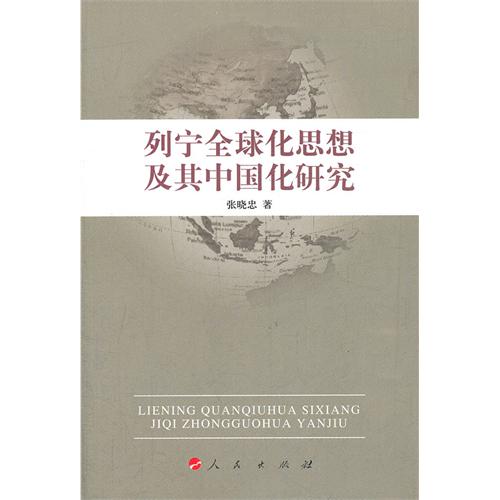Study on Lenin’s Global Thought and its Sinicization

In the wake of the dissolution of the Soviet Union and tremendous changes in Eastern Europe, discussion of Lenin and Leninist thought has all but trailed off to the sidelines of mainstream academic discourse. Some scholars altogether do not consider Lenin as a global thinker. However, Study on Lenin’s Global Thought and its Sinicization, written by Zhang Xiaozhong, a professor from the School of Humanities and Social Sciences at Jiangsu University of Technology, and published by People’s Publishing House in February 2012, takes this skepticism head on, arguing that Lenin founded a theory of world history distinctive of the imperial epoch in which he lived—a product of the stage of imperialism when capitalism was still emerging as the world system and both socialism and capitalism coexisted. Lenin’s global thought is arguably the nexus or key link for Marxist theories of globalization. Three of Lenin’s works demonstrate the evolution of his global thought: his early treatise The Development of Russian Capitalism (1899), is indicative of his thought from 1893-1914; Imperialism, the Highest Stage of Capitalism (1917), a representative work on the era of imperialism and proletarian revolution encapsulates his thinking from 1915-1917, and Our Revolution (1923) shows his thought on the global connections between socialism and capitalism from 1918 to 1923. His main ideas are on the development of capitalism, imperialism, world history and the global connection between the socialist and capitalist systems.
Zhang Liang, a professor from the Department of Philosophy at Nanjing University, observed that while the Chinese academic community has carried out thorough and systematic research on Marxist theories of globalization, they have to a certain extent ignored Lenin’s contributions to these theories. Zhang Xiaozhong’s book makes up for this deficiency, Zhang Liang concluded, noting that scholars cannot avoid or pass over Lenin if they are to study global thought completely. More and more scholars are acknowledging that although Lenin did not directly address internationalism or the “global” situation in the same way as Marx and Engels, his abundant ideas definitely lend themselves to global thinking.
The Chinese version appeared in Chinese Social Sciences Today, No. 472, Jul.8, 2013
Translated by Zhang Mengying
Revised by Charles Horne

 PRINT
PRINT CLOSE
CLOSE